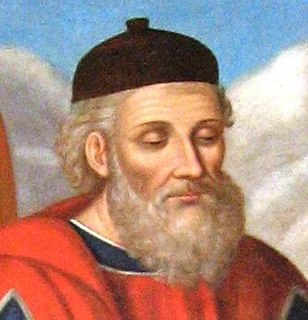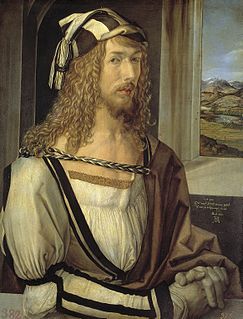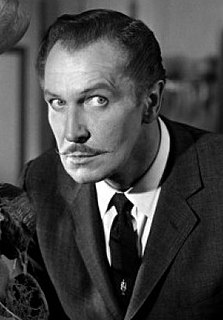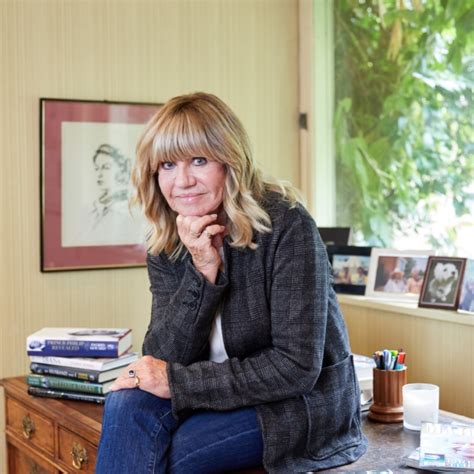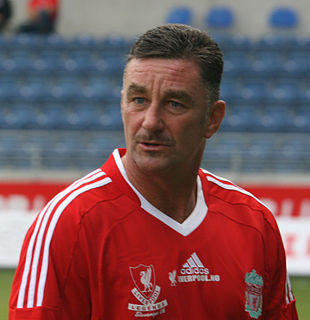A Quote by Diodorus Siculus
Such was the end of Philip (II, king of Macedonia) ...He had ruled 24 years. He is known to fame as one who with but the slenderest resources to support his claim to a throne won for himself the greatest empire among the Hellenes (Greeks), while the growth of his position was not due so much to his prowess in arms as to his adroitness and cordiality in diplomacy.
Related Quotes
Was his life nothing? Had he nothing to show, no work? He did not count his work, anyone could have done it. What had he known, but the long, marital embrace with his wife. Curious, that this was what his life amounted to! At any rate, it was something, it was eternal. He would say so to anybody, and be proud of it. He lay with his wife in his arms, and she was still his fulfillment, just the same as ever. And that was the be-all and the end-all. Yes, and he was proud of it.
No man, however enslaved to his appetites, or hurried by his passions, can, while he preserves his intellects unimpaired, please himself with promoting the corruption of others. He whose merit has enlarged his influence would surely wish to exert it for the benefit of mankind. Yet such will be the effect of his reputation, while he suffers himself to indulge in any favourite fault, that they who have no hope to reach his excellence will catch at his failings, and his virtues will be cited to justify the copiers of his vices.
There was no God in his heart, he knew; his ideas were still in riot; there was ever the pain of memory; the regret for his lost youth-yet the waters of disillusion had left a deposit on his soul, responsibility and a love of life, the faint stirring of old ambitions and unrealized dreams...... And he could not tell why the struggle was worth while, why he had determined to use to the utmost himself and his heritage from the personalities he had passed... He stretched out his arms to the crystalline, radiant sky. I know myself," he cried, "but that is all.
He (King Philip) wanted as many Greeks as possible to take part in the festivities in honour of the gods, and so planned brilliant musical contests and lavish banquets for his friends and guests. Out of all Greece he summoned his personal guest-friends and ordered the members of his court to bring along as many as they could of their acquaintances from abroad.
There are no term limits on His reign. He has always been King and He always will be King. There is no death that threatens the perpetuity of His sovereign authority. There is no usurping of power by a lesser rival to His throne. There are no coups, no revolutions (at least, none that succeed). There is no threat of impeachment. He is a King who rules eternally.
When it comes to his sons, it would be easy to think that the macho Duke of Edinburgh has most in common with Prince Andrew. After all, it was Andrew, his third-born son, who risked his life in the Falklands war as a Royal Navy helicopter pilot - just as Philip had risked his own as a naval officer during World War II.
Fitzgerald never got rid of anything; the ghosts of his adolescence, the failures of his youth, the doubts of his maturity plagued him to the end. He was supremely a part of the world he described, so much a part that he made himself its king and then, when he saw it begin to crumble, he crumbled with it and led it to death.
In His discourses, His miracles, His parables, His sufferings, His resurrection, He gradually raises the pedestal of His humanity before the world, but under a cover, until the shaft reaches from the grave to the heavens, whenHe lifts the curtain, and displays the figure of a man on a throne, for the worship of the universe; and clothing His church with His own power, He authorizes it to baptize and to preach remission of sins in His own name.
Julian was not insensible of the advantages of freedom. From his studies he had imbibed the spirit of ancient sages and heroes; his life and fortunes had depended on the caprice of a tyrant; and, when he ascended the throne, his pride was sometimes mortified by the reflection that the slaves who would not dare to censure his defects were not worthy to applaud his virtues.
